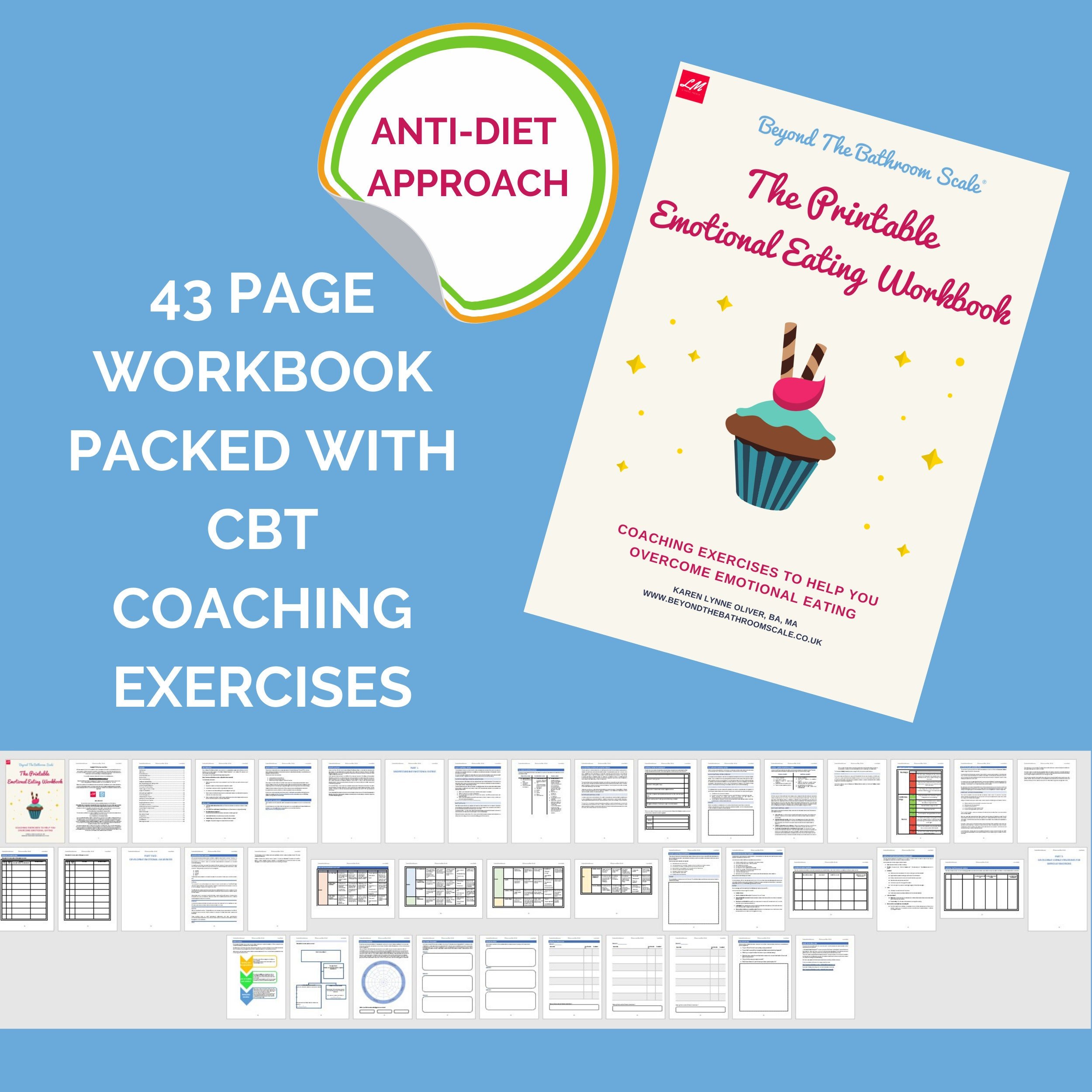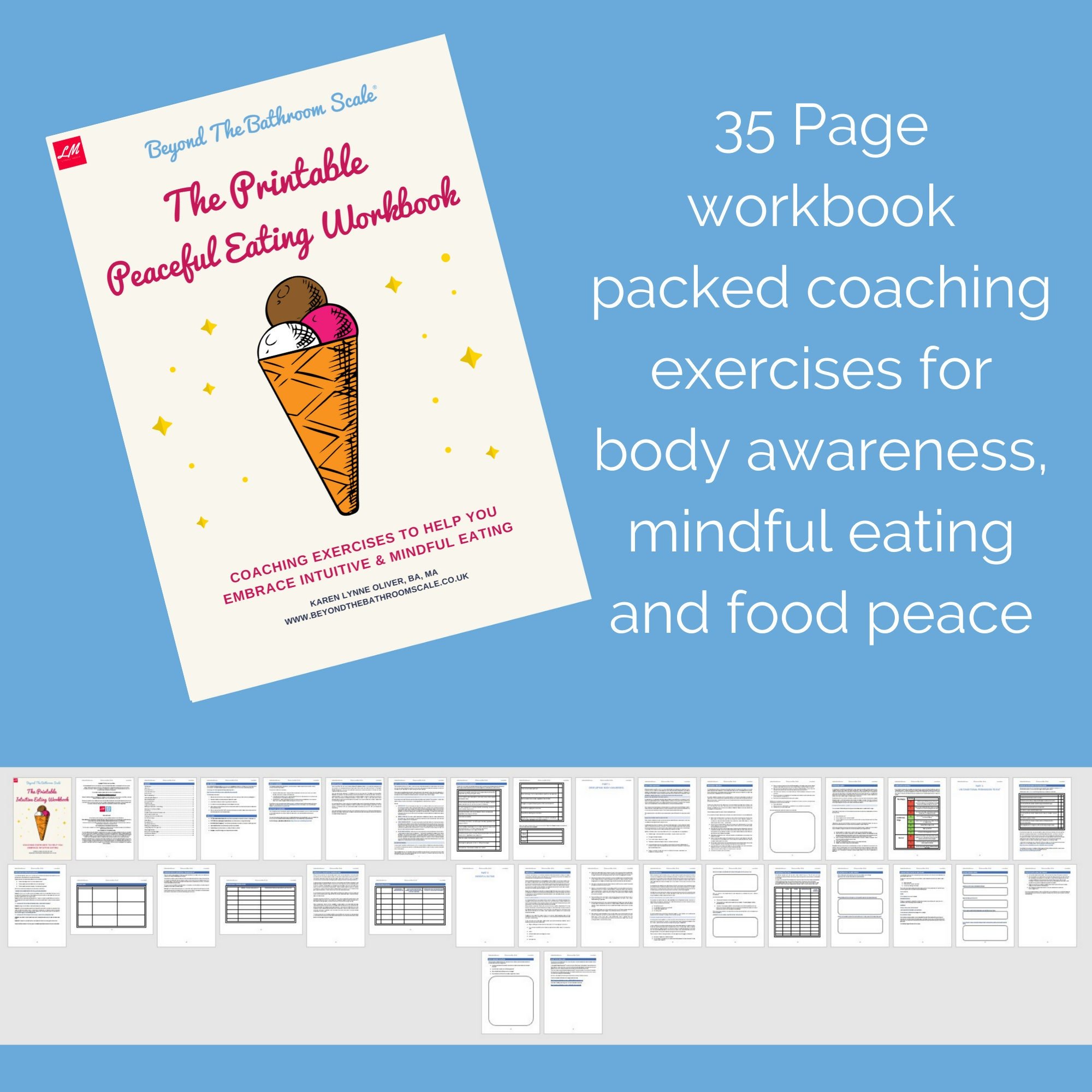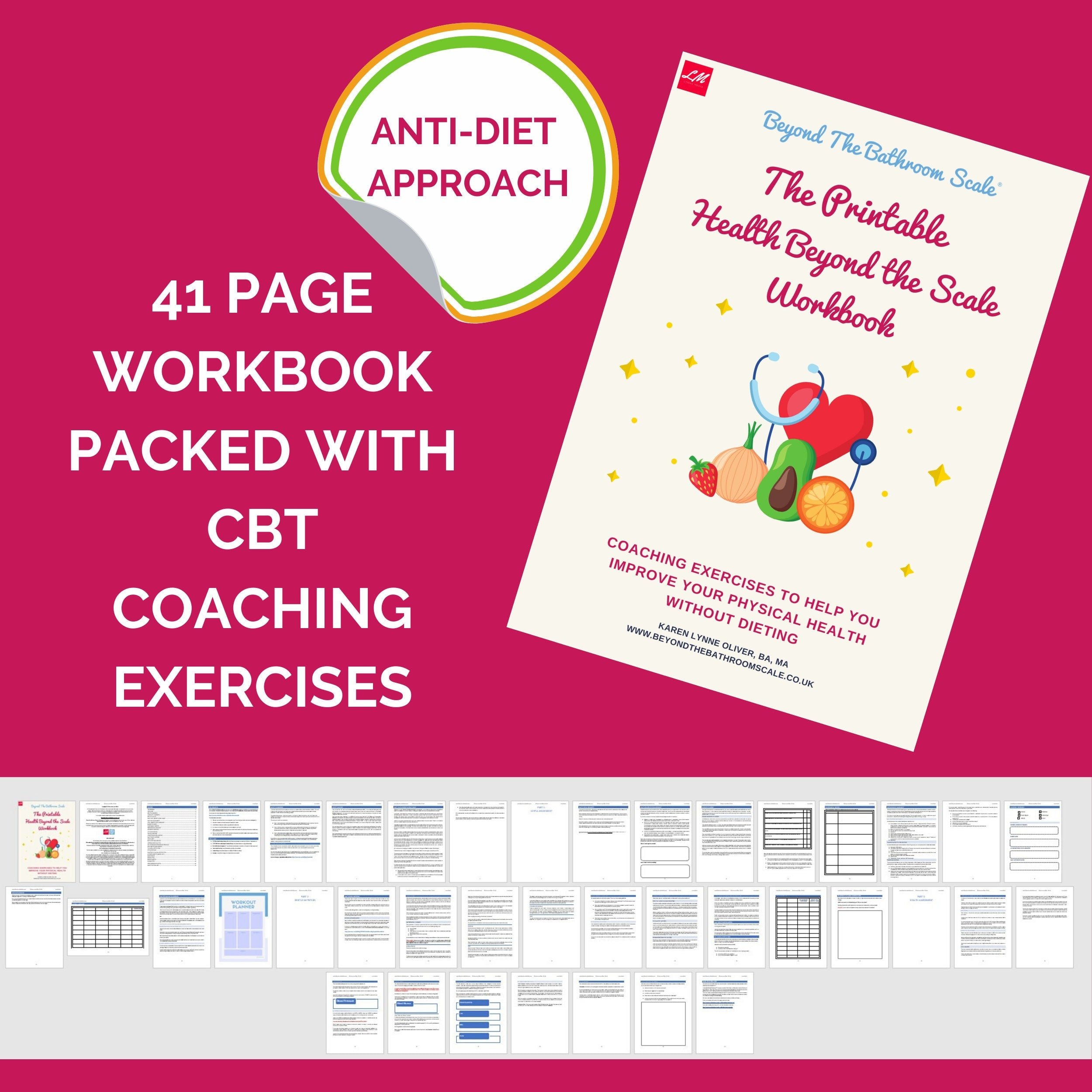Why Diets Don't Work: The Biological Response
Many of us have managed to lose weight at some point in our lives, and often we've done this by reducing our food intake and/or increasing exercise levels (in other words, intentionally manipulating calorie input and output).
But how many of us have managed to keep this same weight off for 5 years or more (the definition of long-term weight loss)? There's a very high chance (some studies have suggested as high as 80-95% chance) that eventually whether it a few weeks, months or even a couple of years down the line, the pounds creep back on, and often a little extra with it.
There are lots of theories out there for why this is and conflicting research floating around (again, that's the nature of science!). In this post, I'm going to be summarising some of the most commonly cited biological explanations.
Bias research
It's useful to remember that the weight loss industry regularly funds weight loss studies, and it probably comes as no surprise that the research cited by diet plans and weight loss group is skewed to show the results of diets in a positive light, as often these studies look at short-term weight loss (i.e. sustained for less than 5 years).
It's very easy to for anyone with a stake in the weight loss industry, or indeed anyone who is deeply ingrained in diet culture, to blame the individual or diet failure. Often it's put down to waning willpower and becoming slack in lifestyle habits once one has reached their goal weight. This approach, however, completely ignores the body's biological response to dieting and intentional weight loss.
Your body doesn't care about your weight loss goals
Before we dive into the biology and research, it's important to understand that your body has one job: to keep you alive. It doesn't care about your goal weight, or fitting into a wedding dress or bikini (society cares about these things, but your body doesn't).
It cares about making sure you get enough food (energy) to function. The purpose of your fat cells is to store excess energy for times when food supply is low. Of course in modern western life, there's no shortage of food, unless we consciously restrict our intake. The trouble with this approach is that your body doesn't know the difference between a food shortage and a deliberate diet. Your body is hardwired to make you want food and search for it, even causing you to want to binge on it, to make up for the restriction, in case there's a food supply shortage (or in our case, another diet) waiting just around the corner.
So let's take a look at what happens to your body when you restrict your food intake:
1) Your brain causes you to notice food more & experience cravings.
Stice et al (2013) found that a part of the brain called the hypothalamus has an increase in responsiveness to images of food. So this explains why when you're on a diet, you suddenly feel like there's food everywhere you look.
It's thought that response this is your brain's way of drawing your attention to the fact that there is food available for you to eat and therefore no need for restriction. To use an analogy, it's much like if you were in a hot dessert suffering from dehydration and began to hallucinate freshwater lakes and reserves to drink from.
During the time of perceived food shortage, you are also more likely to crave high-fat foods because these are higher in calories (Bacon, 2010).
2) Your hormones increase your appetite as well as raise the threshold of satiety
(i.e. you have to eat more than usual in order to feel satisfied)
This is down to the double-edged sword of hormones: leptin and ghrelin. During a perceived food shortage, our body produces an increased about of the hormones Leptin, peptide YY, and cholecystokinin, which is responsible for our feelings of hunger. This is your body's way of amping up the sense of urgency to find food.
At the same time, there is a reduction in the production of the fullness hormones: ghrelin, gastric inhibitory polypeptide, and pancreatic polypeptide. These hormones are responsible for telling the body when to stop eating. It's thought that a reduced level of these has the purpose of trying to compensate for the unreliable food supply, by causing you to eat more than you'd typically need in one sitting so that there's some excess energy to store for later.
Sumithran and Priya et al (2011) found that this hormonal adaptation to weight loss can carry on for up to a year after the diet/perceived food shortage ends! [Which is one of the reasons why it's so important to not focus on weight loss while relearning how to eat Intuitively!]
3) Your body burns muscle tissue for energy and at the same time promotes the storage of fat.
The frustrating thing about this is that's its the polar opposite of what most of us have been trying to do.
Our muscle tissue is active tissue that uses a lot of energy (more energy than fat tissue). When we lose weight, our bodies actively reduce the amount of muscle in our body so it uses less energy overall (Bacon 2010, NHS 2017).
Much like how our hormonal adaptation can be a double edge sword, we see a similar effect here as our body also releases an enzyme which promotes fat storage and reduces the release of fat (Kern et al, 1990). In other words, our body composition changes to one that favours body fat over muscle mass.
4) Your body slows your metabolism down to conserve energy
Metabolism refers to the all of the processes going on within your body to keep it alive and functioning, and the amount of energy it requires to do this. Metabolism is affected by numerous factors, including age, body composition (see the previous point), genes and gender to name some. Obviously, not all of these factors can be controlled, but one factor shown to influence metabolic rate is calorie restriction (NHS 2017).
Studies such as Leibel and Hirsch (1984) have shown that when we lose weight, our metabolism slows down to prepare for a famine. This is our body's version of making staff cutbacks when revenue is low, if you like. It figures that if there's less energy to spend, it must do cut back on some of the non-essential processes.
In a nutshell, our body's survival mechanism means that in the times of famine (i.e. a diet), our slower metabolism combined with a decrease in muscle mass makes it much easier for our body to put back on body fat after a diet. This means that we could get back to 'starting weight' pre-diet, yet have an even slower metabolism (i.e. lower caloric requirement) and therefore end up gaining more weight (or body fat, to be more accurate)(NHS 2017).
To demonstrate the long-term metabolic impact of crash dieting, a study looked at the metabolic rates of former Biggest Loser contestants (where contestants compete to rapidly lose large amounts of weight in a set period of time via very-low-calorie diets and excessive exercise) and found that their metabolic rates were at a reduced level even 6 years after the show, and significantly lower than the expected metabolic rate compared to a person of a similar rate who hadn't crash dieted.
Symptoms of a slow metabolism include feeling cold all the time, less desire to move, lethargy and fatigue, general feelings of physical weakness, dry cracked skin, sugar cravings and difficulty losing weight.
Setpoint theory
As we've just seen, the body has an arsenal of survival tools at its disposal. An increasing body of research suggests that your body is built to naturally maintain a healthy weight by using these adaptive responses, doing whatever it possibly can to maintain the ideal amount of fat mass it needs to function.
This is referred to as your set point weight and is the weight you naturally stay at when you eat according to hunger and fullness cues and the weight your body creeps back up months or years after a diet, even when you're maintaining your way of eating and exercising (Bacon 2010, Bennet and Gurin, 1983).
It also means you have to eat less and less, each time in order to lose weight and continue to eat less food in order to maintain the lower weight, which most people will find unsustainable in the long term, partly due to the biological responses we've just discussed.
In addition to continually having to have to eat less, after years of dieting, restriction and weight cycling, your body responds by raising your set point, so you may find you not only return to your starting weight but go a little over with each dieting attempt. (Bennet and Gurin, 1983).
So what does all this mean?
To wrap all of this up in one neat takeaway: dieting and calorie restriction can actually backfire because of our body's survival mechanisms: While in a calorie deficit, our brains are wired to make us notice food more and we may experience cravings for higher calorie foods. Our hunger hormones increase, while our fullness hormones simultaneously decrease, in order to encourage us to eat more. Our body composition changes, in favour of fat storage, rather than muscle mass, in order to use less energy. Our metabolisms also slow down in order to conserve energy (partly due to a loss of muscle mass). It's then thought that our natural 'set point weight' becomes raised, increasing the amount of weight we'll regain after each new diet.
References:
Fildes, A, et al (2015) "Probability of an Obese Person Attaining Normal Body Weight: Cohort Study Using Electronic Health Records", American Public Health Association, September 2015
Stice, Eric, Kyle Burger, and Sonja Yokum. “Caloric deprivation increases responsivity of attention and reward brain regions to intake, anticipated intake, and images of palatable foods.” Neuroimage 67 (2013): 322-330.
Bacon, Linda. Health at every size: The surprising truth about your weight.BenBella Books, 2010.
Sumithran, Priya, et al. “Long-term persistence of hormonal adaptations to weight loss.” New England Journal of Medicine 365.17 (2011): 1597-1604.
Bacon, Linda. Health at every size: The surprising truth about your weight.BenBella Books, 2010.
Kern, Philip A., et al. “The effects of weight loss on the activity and expression of adipose-tissue lipoprotein lipase in very obese humans.” New England journal of medicine 322.15 (1990): 1053-1059.
NHS, (2017) https://www.nhs.uk/Livewell/loseweight/Pages/how-can-I-speed-up-my-metabolism.aspx
Leibel, Rudolph L., and Jules Hirsch. “Diminished energy requirements in reduced-obese patients.” Metabolism 33.2 (1984): 164-170.
Fothergill, E., Guo, J., Howard, L., Kerns, J. C., Knuth, N. D., Brychta, R., Chen, K. Y., Skarulis, M. C., Walter, M., Walter, P. J. and Hall, K. D. (2016), Persistent metabolic adaptation 6 years after “The Biggest Loser” competition. Obesity, 24: 1612–1619. doi:10.1002/oby.21538
Bennet, W and Gurin, J., The Dieter's Dilemma: The Setpoint Theory of Weight Control, Basic Books; Reprint edition (2 Aug. 1983)







